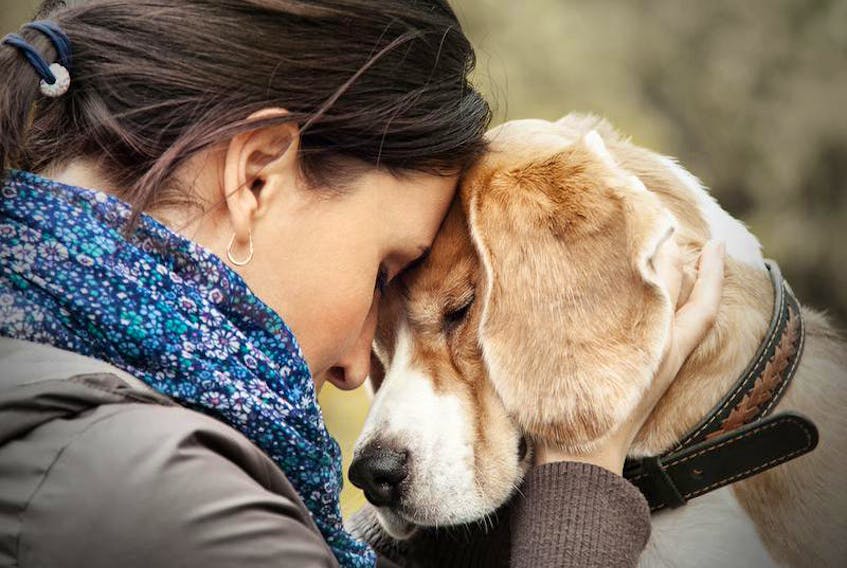BY ELIZABETH SCHOALES
GUEST OPINION
No compassionate person could hear about the two boys in Alberta who recently tortured and killed a coyote without being horrified. Many ask what kind of society could produce children like this, with such a frightening lack of empathy for another living being that they even thought nothing of filming their brutality and posting it to social media.
Sadly, this atrocity isn’t unique. It was only five years ago that three boys in P.E.I. were convicted for bludgeoning 65 seals to death.
These examples of cruelty should be aberrations, but they aren’t. Animals are imprisoned, tormented and killed daily by the thousands in Canada in research labs, on farms, in transport trucks and slaughterhouses, in the ocean, in the wild, in stores, in zoos, in rodeos – the list goes on. We’re conditioned from birth not to acknowledge their suffering because someone is profiting from it, or just enjoying it.
We’re surrounded by advertising and campaigns encouraging us to accept it, whether it’s telling us to buy fur trimmed coats we don’t need, or eat animal products we don’t need, or accept unsupported claims that killing wildlife is good for the environment, or believe that testing on animals will cure our diseases.
We’re told it’s acceptable because that’s what we’ve always done - as though society’s values never change. We’re told it’s acceptable because it’s based on science - as though science is somehow a substitute for morality. Yet while science is overwhelmingly showing that other species are far more intelligent, emotionally complex and capable of suffering than we’ve ever given them credit for, the logical conclusion that we shouldn’t be exploiting them gets pushed aside.
Animal welfare legislation sanctions this violence by protecting the interests of those who inflict it, and providing defences for them. That includes P.E.I.’s Animal Welfare Act, which, like legislation in other provinces, segregates animals into different groups, based not on their needs, but on their economic value. Companion animals receive the most protection, while animals used for profit are left to suffer cruelty that would sicken us if inflicted on our pets. Fish, marine mammals and non-captive wildlife get no protection at all.
To make matters worse, the P.E.I. Humane Society only has jurisdiction over companion animals. Responsibility for most animals falls to government officers – and they don’t work on weekends. What little protection there is for most animals stops on Friday afternoons. So, if a member of the public sees an animal on a Saturday or Sunday at a fair or exhibition, on a farm, in a petting zoo, or in a travelling animal show who isn’t receiving the standard of care the Act requires, no one is going to help them.
At a recent public presentation about the Animal Welfare Act held at the Atlantic Veterinary College, someone summed it up well. Not all animals are equal under the law. It depends on whether they end up on your couch or on your plate.
Laws across the country justify this double standard with vague terms like “necessary,” “generally accepted,” and “reasonable.” But there’s no logical, scientifically credible or morally defensible argument to support the notion that violence towards other sentient beings capable of feeling physical and emotional pain is any of these things. We have no inherent right to inflict suffering on others, or decide who gets to live their own life or not. There’s no humane way to kill someone who doesn’t want to die.
We can’t continue allowing people with vested interests in animal abuse and the politicians who give it legal license to decide what we find acceptable. Otherwise we shouldn’t be surprised when children beat animals to death for fun. If we have any compassion for other living beings, we must stand up and make it clear that we don’t accept animal abuse anytime, anywhere, from anyone. It is not necessary or reasonable. If we don’t, we are the society that produces children like this.
- Elizabeth Schoales works in animal right law. She lives in Charlottetown.









